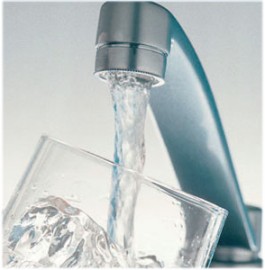Water Scarcity by 2030: True for Every Second Person on Earth, UN says

About a half of the global population could be facing water shortages by 2030 when demand would exceed water supply by 40 percent, says United Nations Secretary General Ban Ki-Moon.
Opening the Water Summit in Budapest, Hungary on Tuesday, the UN chief warned against unsustainable use of water resources.
“Water is wasted and poorly used by all sectors in all countries. That means all sectors in all countries must cooperate for sustainable solutions. We must use what we have more equitably and wisely,” Ban said, as cited by the UN website.
“By 2030 nearly half the global population could be facing water scarcity. Demand could outstrip supply by 40 per cent.”
Governments cannot cope with the problem on their own, without the “full engagement” of all other players, including business, Ban underlined.
Agriculture remains the largest consumer of freshwater. “There is growing urgency to reconcile its demands with the needs of domestic and industrial uses, especially energy production,” the UN Secretary General said.
He urged industrial giants as well as small farmers to learn to get “more crop per drop” by using advanced irrigation technologies and focusing on “climate-resilient” rather than water intensive crops (i.e. rice).
Secretary General of the United Nations Ban Ki-moon takes a glass of water as he makes his opening speech for ‘Budapest Water Summit 2013’ on the stage of the Millenaris Cultural Center in Budapest on October 8, 2013 during the beginning of the summit. Ban Ki-moon pays a visit to Hungary to open this world conference for clean water. (AFP Photo)Secretary General of the United Nations Ban Ki-moon takes a glass of water as he makes his opening speech for ‘Budapest Water Summit 2013’ on the stage of the Millenaris Cultural Center in Budapest on October 8, 2013 during the beginning of the summit. Ban Ki-moon pays a visit to Hungary to open this world conference for clean water. (AFP Photo)
Climate change adds to the risk of water shortages in large parts of the world and that is another challenge that nations should cooperate on.
“We must make sure that water remains a catalyst for cooperation not conflict among communities and countries,” Ban stressed.
Global warming means not only more droughts, but also more floods.
“That is why we must do everything we can to keep global temperature rise to below 2 degrees Celsius above pre-industrial levels,” the UN chief said.
Back in 2000, world leaders adopted Millennium Development Goals (MDG). Among them was to halve the proportion of the population without sustainable access to safe drinking water and basic sanitation by 2015.
“While the MDG target for providing access to improved water sources has been reached, 780 million people lack this basic necessity,” Ban said on Tuesday. “Roughly 80 per cent of global wastewater from human settlements or industrial sources is discharged untreated. Water quality in at least parts of most major river systems still fails to meet basic World Health Organization standards.”
About one-third of people on the planet drink water that is dangerous for health, while even a larger part of population lack adequate sanitation, according to the UN chief.
“Some 2.5 billion people lack the dignity and health offered by access to a safe, decent toilet and protection from untreated waste. One billion people practice open defecation.”
Such insanitary practices, common for many developing countries, are considered among the main causes of diarrhea – the second biggest killer of children in the world after pneumonia.
“Even when it does not kill, repeated diarrhea can cause childhood stunting. These children are more vulnerable to disease and their brains do not develop as they should,” Ban’s speech at the Budapest Water Summit reads.
In his words, investment in sanitation is a down-payment on a sustainable future, with economists estimating that every dollar spent can bring a five-fold return.
“Our societies cannot prosper without clean, plentiful freshwater. People cannot thrive without adequate sanitation.”
According to the United Nations, Sub-Saharan Africa has the largest number of water-stressed countries of any region.

